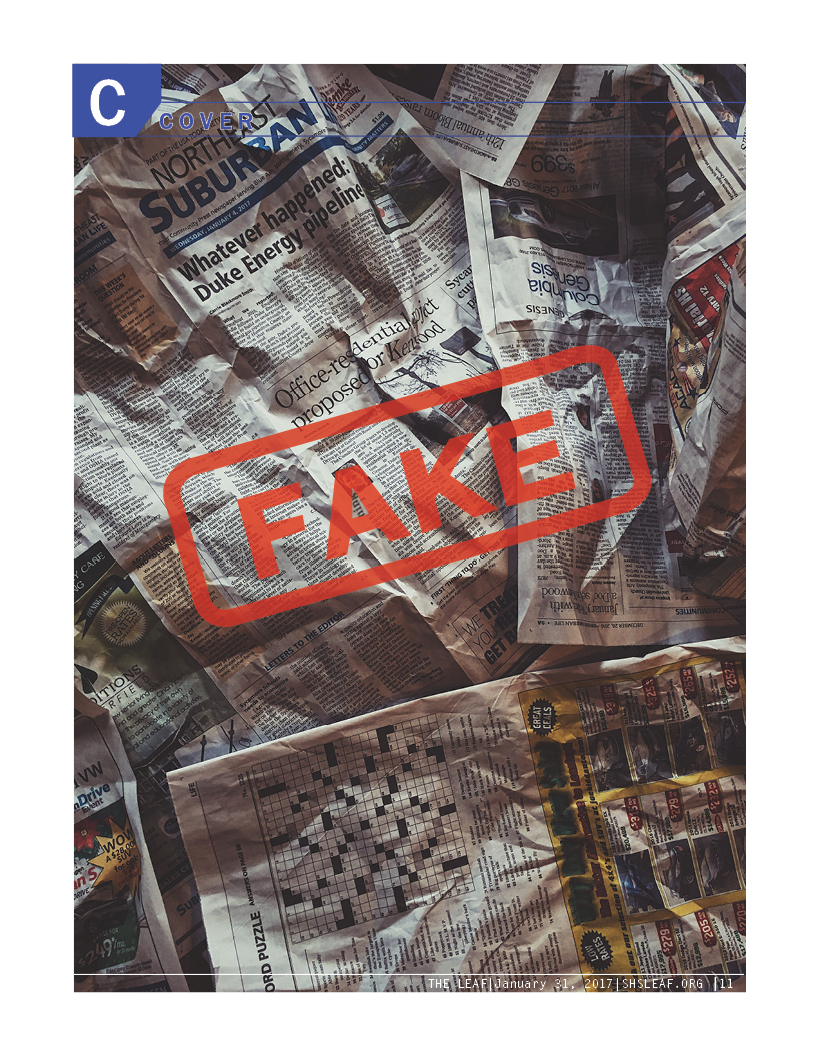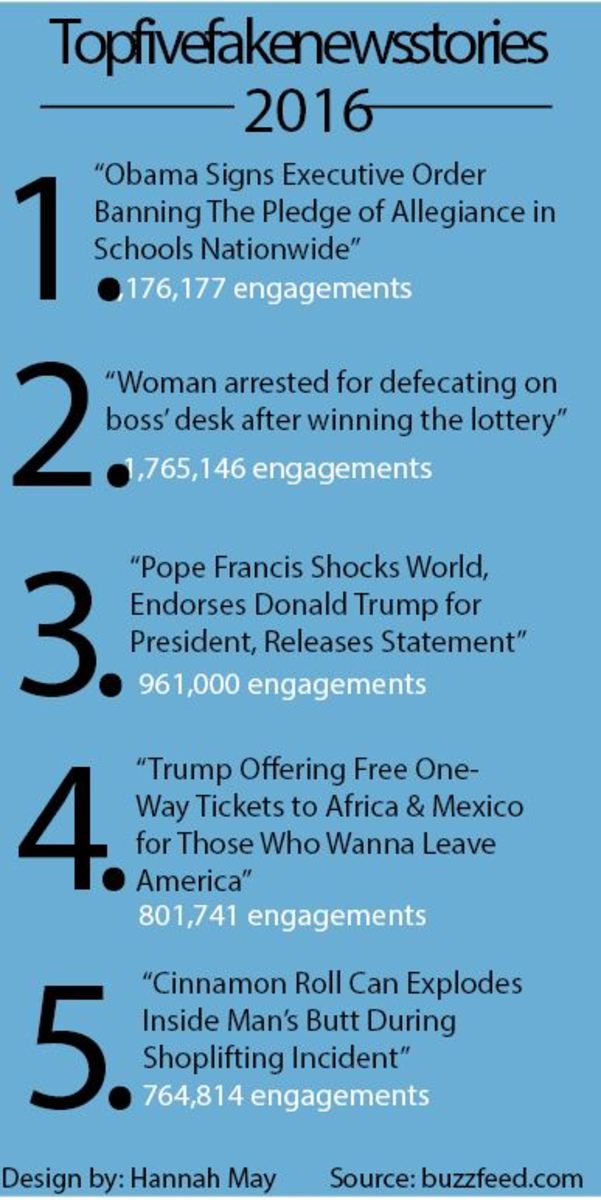Fake News
January 30, 2017


Fake news, false facts
Social media influences public opinion
As we move into 2017, one of the more prominent problems to carry over from the last year is the epidemic of fake news. Fake news is the spreading of fictional news articles that are presented as fact.
The start of fake news was rooted in the rise of twentieth century technology. With recent expansions in the way people view their news, the restrictions on what is reported have loosened.
There is limited prevention in the Internet era of the spread of fake news due to the fact that sites like Twitter or Facebook are built on the premise that everyone has a voice. This makes it hard to discern whether news outlets are publishing fake news or attempting to express their opinions.
“Let me just say I think it would be a mistake for social media companies to try to, on their own, determine or deign what is a fake news story and what isn’t and shut it off, or what’s a good news organization or a bad news organization. That’s a very, very slippery slope,” said Vivian Schiller, former head of Twitter’s news operation, to NPR.
Increasing fake news outlets begs the question: where is the line for fake news? Does a simple misreporting misstep mark an institution as a source of fake news. How many “mistakes” before something is declared fake news?
Twitter has taken steps to address the problem by first making it easier to report abusive language and second by suspending accounts that perpetuate fake news. However, this move continues down the slippery slope.
“Well, those [changes] are two very, very different things, so let us separate them. The first one is allowing a greater range of tools to prevent abuse on Twitter.
“I applaud Twitter for that move and I encourage them to keep going. The second action they took is much trickier and frankly concerns me a little bit. Twitter has selected certain Twitter accounts–most of them are from the so-called alt-right-and has suspended them,” Schiller said.

MEDIA. Mark Zuckerburg addresses the effect of fake news on the election. Facebook was criticized for allowing the spread of these inaccurate stories. Zuckerberg also mentioned the measures Facebook would take to combat fake news.
Sites like Twitter and Facebook have not put out a consistent guide to what is labeled fake news and what is not. This makes it difficult to enforce these rules without push back.
“The problem is, there is very little transparency and consistency when it comes to what accounts Twitter is suspending and which they are not. As long as there is an even playing field for all and the rules are clearly understood, that would be a good thing. We are not there yet. There’s more to do,” Schiller said.

DEFAMATION. Donald Trump has been the victim of numerous fake stories. He also publicized multiple fake news stories throughout his campaign. The election was a major topic of most fake news stories last year.
America’s fake news epidemic
Student’s opinion on dangerous trend
Justin Bieber moving to Cincinnati, Donald Trump calling Republicans idiots, and Hillary Clinton murdering former staffers. Fake news is taking the world by storm, and people are becoming more and more worried about the accuracy of their news.
Fake news headlines and stories are lies that are created to mislead the public. Headlines about Pope Francis endorsing Trump, Clinton running a prostitution ring, and much more have led to many Americans becoming victims of believing in inaccurate information.
The consequence is serious. You read it, you believe it, and you share it. One popular purpose for fake news is political propaganda. Many are blaming Facebook for swaying the results of the election.
Writers of fake news make money based on the views on their articles; once someone uploads a news link to Facebook, it gets shared and shared, gaining more viewers. Nonetheless, Facebook CEO Mark Zuckerberg has stated that it is highly unlikely that Facebook changed the election results.
Facebook and Google have been taking steps to remove fake news from their sites by taking away misleading ads.
“We believe in giving people a voice, which means erring on the side of letting people share what they want whenever possible,” Zuckerberg said.
As a major media outlet, Facebook should be responsible for all of the information that is posted, just like other companies take ownership of their products.
Not doing anything to at least make sure these stories are true is incredibly irresponsible and ignorant.
Not caring about fake news is one thing, but being irresponsible for one of the most popular social media websites in the world is another.
People learn how to take responsibility as they grow up. Taking on the mindset of being irresponsible for one thing will most likely lead to being irresponsible for other things, just like how fake news can dramatically escalate.
I myself have been a victim of reading and believing fake news. Deception is an awful way to persuade people to believe what you want them to.
The job of the media is to provide information to the people. The reason we have the First Amendment, which protects freedom of the press, is to prevent the suppression of information.
However, this information ought to be accurate. If you flood people with both fake news and real news you run the risk of a misinformed population, hostile to new information.
Prevent yourself from falling into the fake news trap by determining whether the article you are reading is from a legitimate website, checking the “contact us” page, looking at the sources, and looking at the ads.
“Fake news is so easy to believe and it is really important to make sure you know that what you are reading is accurate,” said Adam Levine, 10.
While the saying ‘fake it till you make it’ could at times be helpful, it is highly recommended that you check all of your news sources.
